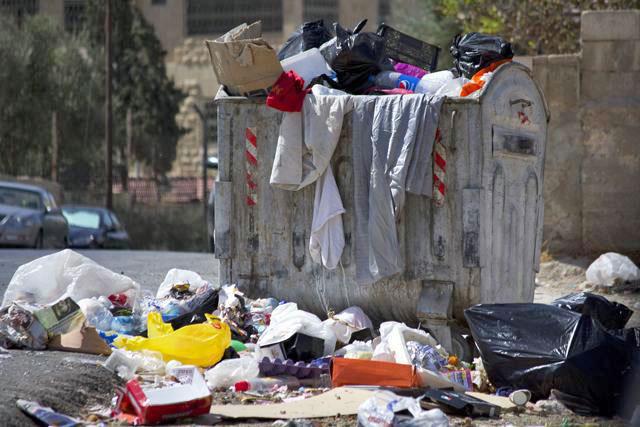You are here
‘Myriads of barriers’ hamper recycling practices in Jordan
By Maria Weldali - Feb 06,2020 - Last updated at Feb 06,2020
AMMAN — The 2019 Recycling in Jordan Country-Wide Research Report stated that Recycling and Solid Waste Management (SWM) on an individual level in the Kingdom is impeded by a lack of infrastructure and recycling facilities.
Commissioned by OXFAM, a charitable organisation devoted to alleviating global poverty, the report noted that “myriads of barriers” hinder upgrading recycling efforts Jordan.
Topping these constraints is “a perceived lack of sufficient and consistent government-led recycling initiatives and infrastructure”, according to the report.
The report also showed that 49 per cent of those interviewed believe that barriers to recycling come from a lack of infrastructure, including pick-up services and sorted waste bins.
Of the total participants from across the Kingdom, 32 per cent said that the main hurdle to recycling is lack of initiative, interest and motivation.
“Many believe that if recycling were integrated within the country’s larger solid waste operations, it would become easier and less time-consuming for individuals to regularly take part in these efforts,” the report read.
Another challenge to recycling is the scarcity of general knowledge on what can or cannot be recycled, with an estimated of 18 per cent of respondents indicating that they are unaware of or have minimal familiarity with SWM and recycling.
The majority of people who do not recycle, accounting for 75 per cent of those surveyed, indicated that they would start recycling if these and other barriers were removed, the report showed.
Related Articles
AMMAN — In the Kingdom, recycling efforts are relatively low-priority for citizens, as 56.7 per cent of Jordanians struggle with “fragile an
AMMAN — Oxfam and the German Agency for International Cooperation (GIZ) on Monday launched a country-wide report on recycling and solid wast
AMMAN — An agreement between the UN Development Programme (UNDP) Jordan, the Ministry of Municipal Affairs (MOMA) and the Canadian internati


















